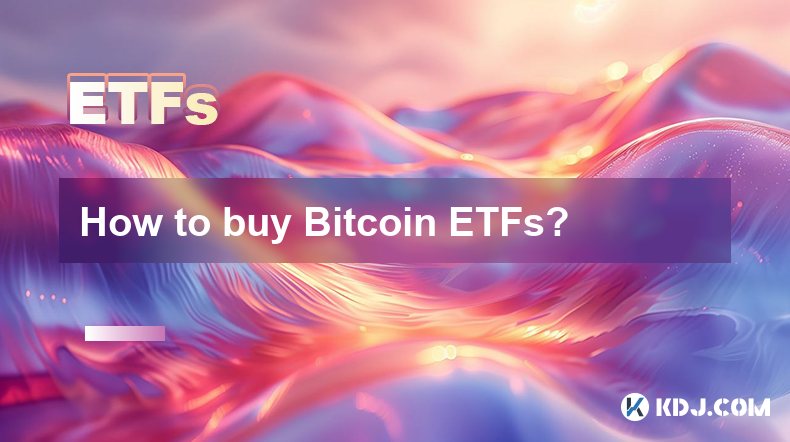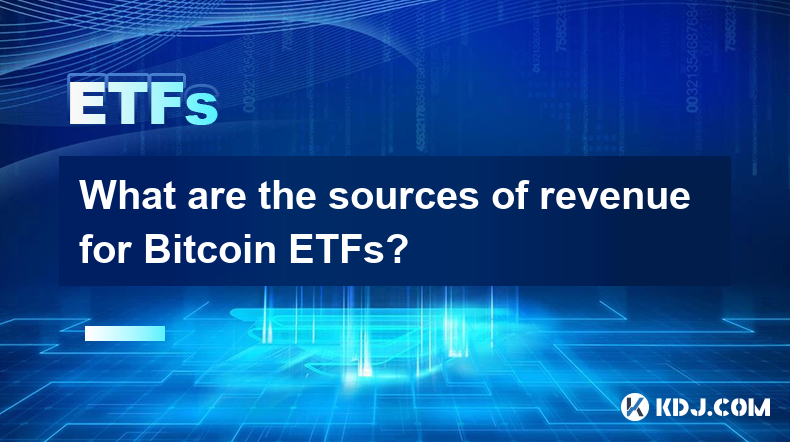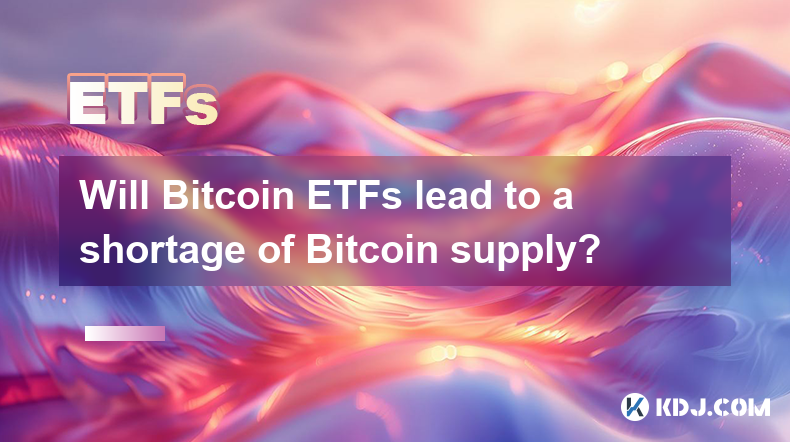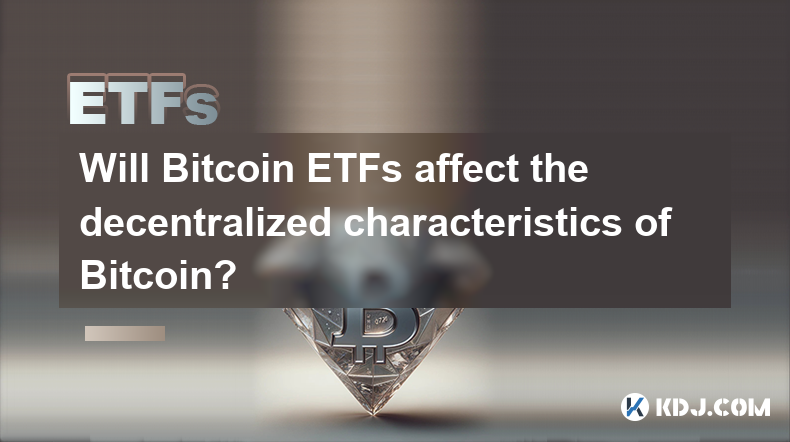-
 Bitcoin
Bitcoin $86,861.9415
-0.87% -
 Ethereum
Ethereum $2,394.4494
-1.30% -
 Tether USDt
Tether USDt $0.9987
-0.06% -
 XRP
XRP $2.2529
0.62% -
 BNB
BNB $618.6090
0.92% -
 Solana
Solana $137.3071
-4.60% -
 USDC
USDC $1.0004
0.06% -
 Dogecoin
Dogecoin $0.2060
-0.29% -
 Cardano
Cardano $0.6701
1.11% -
 TRON
TRON $0.2276
0.25% -
 Chainlink
Chainlink $15.3929
3.77% -
 Litecoin
Litecoin $127.5352
13.78% -
 Avalanche
Avalanche $22.1823
4.02% -
 Sui
Sui $2.9717
5.33% -
 Stellar
Stellar $0.2928
3.65% -
 Toncoin
Toncoin $3.5412
0.86% -
 Shiba Inu
Shiba Inu $0.0...01424
2.38% -
 UNUS SED LEO
UNUS SED LEO $8.9693
1.14% -
 Hedera
Hedera $0.1967
5.84% -
 Polkadot
Polkadot $4.8823
9.00% -
 MANTRA
MANTRA $7.5030
-1.13% -
 Hyperliquid
Hyperliquid $19.8931
0.20% -
 Ethena USDe
Ethena USDe $0.9991
-0.01% -
 Bitcoin Cash
Bitcoin Cash $295.8880
3.40% -
 Dai
Dai $0.9997
0.01% -
 Bitget Token
Bitget Token $4.0291
-4.76% -
 Uniswap
Uniswap $8.0239
1.53% -
 Monero
Monero $217.6670
0.28% -
 NEAR Protocol
NEAR Protocol $3.0394
3.25% -
 Pepe
Pepe $0.0...08206
1.11%
How to buy Bitcoin ETFs?
Bitcoin ETFs offer exposure to Bitcoin's price movements via traditional stock exchanges, simplifying investment but not mirroring Bitcoin's spot price perfectly. Regulatory landscapes vary, impacting ETF availability and investor protections. Careful brokerage selection and risk management are crucial for successful ETF investment.
Feb 26, 2025 at 10:18 pm

How to Buy Bitcoin ETFs?
Key Points:
- Understanding Bitcoin ETFs: We'll delve into what Bitcoin ETFs are, how they differ from directly owning Bitcoin, and the advantages and disadvantages of investing in them.
- Regulatory Landscape: Navigating the complex regulatory environment surrounding Bitcoin ETFs is crucial. We'll explore the differences in regulations across various jurisdictions and their impact on availability.
- Choosing a Brokerage: Selecting the right brokerage platform is paramount for a smooth and secure buying experience. We'll discuss factors to consider when choosing a broker, including fees, security measures, and available ETF options.
- Placing Your Order: A step-by-step guide on how to actually purchase Bitcoin ETFs, from account setup to executing the trade.
- Diversification and Risk Management: Understanding how Bitcoin ETFs fit into a broader investment portfolio and strategies for managing risk associated with this investment vehicle.
How to Buy Bitcoin ETFs: A Detailed Guide
- Understanding Bitcoin ETFs and Their Implications:
Bitcoin Exchange-Traded Funds (ETFs) are investment vehicles that track the price of Bitcoin without requiring investors to directly hold the cryptocurrency. They are traded on traditional stock exchanges, making them accessible to a wider range of investors compared to directly purchasing Bitcoin. This accessibility is a major advantage, as it simplifies the process for those unfamiliar with cryptocurrency exchanges or wary of the security risks associated with self-custody. However, it's crucial to understand that Bitcoin ETFs are not directly Bitcoin. They represent exposure to Bitcoin's price movements, often through holding Bitcoin futures contracts or physically backing the ETF with Bitcoin held in custody by a regulated entity. This indirect exposure means that the ETF's price may not perfectly mirror Bitcoin's spot price, due to factors like management fees, tracking errors, and the mechanics of the underlying instrument.
Furthermore, the regulatory environment surrounding Bitcoin ETFs significantly impacts their availability and characteristics. Different jurisdictions have varying approaches to regulating crypto assets, leading to differences in the types of Bitcoin ETFs available and the level of investor protection offered. For instance, some jurisdictions may only allow ETFs backed by Bitcoin futures contracts, while others might approve physically-backed ETFs, which hold Bitcoin directly. Understanding these regulatory nuances is essential before making an investment decision, as they influence the ETF's structure, expense ratio, and overall risk profile. Investors should carefully review the prospectus of any Bitcoin ETF to understand the investment strategy, risks, and fees involved. Ignoring these details can lead to unexpected losses or missed opportunities. The transparency and regulatory oversight offered by ETFs are often seen as a significant advantage over direct Bitcoin ownership, particularly for risk-averse investors. However, this comes at the cost of potentially lower returns compared to direct Bitcoin ownership, due to fees and tracking discrepancies. The choice between direct Bitcoin ownership and investing in a Bitcoin ETF depends on individual risk tolerance, investment goals, and familiarity with the cryptocurrency market.
- Navigating the Regulatory Landscape of Bitcoin ETFs:
The regulatory landscape surrounding Bitcoin ETFs is constantly evolving and varies significantly across different countries and regions. In some jurisdictions, regulatory bodies have expressed concerns about the volatility of Bitcoin and the potential for market manipulation, hindering the approval of Bitcoin ETFs. Other jurisdictions have adopted a more proactive approach, recognizing the potential benefits of Bitcoin ETFs and establishing clearer regulatory frameworks to facilitate their launch.
The regulatory hurdles for Bitcoin ETF approval often involve demonstrating that the ETF can adequately mitigate risks associated with Bitcoin's volatility and prevent market manipulation. This often necessitates stringent requirements for custodianship, market surveillance, and liquidity management. Furthermore, the regulatory scrutiny surrounding Bitcoin ETFs extends beyond the ETF itself, encompassing the underlying Bitcoin market and the entities involved in its custody and management.
Understanding the regulatory environment in your jurisdiction is crucial before investing in Bitcoin ETFs. Investors should research the regulatory status of Bitcoin ETFs in their country of residence to ensure that they are investing in a legally compliant product. This includes checking whether the ETF has been approved by the relevant regulatory authority and understanding the specific regulations governing its operation. Failure to do so can lead to legal complications and potential financial losses. The regulatory landscape is a dynamic one, and keeping abreast of any changes is crucial for informed investment decisions. Staying informed about regulatory developments and updates from relevant authorities is a vital aspect of responsible investing in Bitcoin ETFs.
- Choosing the Right Brokerage for Bitcoin ETF Trading:
Selecting a suitable brokerage platform is crucial for a seamless and secure Bitcoin ETF buying experience. Several factors should be considered when making this decision, including fees, security measures, available ETF options, and the brokerage's overall reputation.
- Fees: Brokerage fees can significantly impact your overall returns. These fees can include trading commissions, account maintenance fees, and other charges. Compare the fee structures of different brokerages to find one that aligns with your budget and trading volume. Pay close attention to the details of the fee structure, as some brokerages may have hidden fees or charges that are not immediately apparent.
- Security: The security of your investment is paramount. Choose a brokerage that employs robust security measures, such as two-factor authentication, encryption, and regular security audits. Research the brokerage's track record regarding data breaches and security incidents. A brokerage with a strong reputation for security will provide greater peace of mind.
- Available ETF Options: Not all brokerages offer the same selection of Bitcoin ETFs. Ensure that the brokerage you choose offers the specific Bitcoin ETFs you are interested in. Compare the range of ETFs available, as well as the specific features of each ETF, such as expense ratios and underlying assets.
- Reputation: Choose a reputable and well-established brokerage with a proven track record. Look for brokerages that are regulated by reputable financial authorities. Check online reviews and ratings to get an idea of other investors' experiences with the brokerage. A reputable brokerage will provide better customer support and a more trustworthy platform for your investments.
- Step-by-Step Guide to Buying Bitcoin ETFs:
The process of buying Bitcoin ETFs is generally straightforward, but it's important to follow the steps carefully to ensure a smooth transaction.
- Opening a Brokerage Account: Begin by opening a brokerage account with a reputable firm that offers access to Bitcoin ETFs. You will need to provide personal information and undergo an identity verification process. This process may involve providing documentation such as a driver's license or passport.
- Funding Your Account: Once your account is approved, you will need to fund it with the necessary capital to purchase the Bitcoin ETFs. This can be done through various methods, such as bank transfers, wire transfers, or electronic payments. Ensure you understand the deposit and withdrawal methods and associated fees before funding your account.
- Searching for Bitcoin ETFs: Use the brokerage's search function to locate the specific Bitcoin ETF you wish to purchase. Review the ETF's details, including its expense ratio, underlying assets, and historical performance.
- Placing Your Order: Once you have selected the Bitcoin ETF, you can place your order. Specify the number of shares you wish to purchase and review the order details before confirming. Ensure you understand the order type, such as a market order or a limit order, and how it will affect the execution price.
- Monitoring Your Investment: After purchasing the Bitcoin ETF, monitor its performance regularly. Keep an eye on the ETF's price movements and consider adjusting your investment strategy as needed. Regularly review your portfolio to ensure it aligns with your investment goals and risk tolerance.
- Diversification and Risk Management with Bitcoin ETFs:
Bitcoin ETFs, while offering exposure to Bitcoin, still carry inherent risks. It's crucial to incorporate them into a well-diversified portfolio and employ effective risk management strategies.
- Diversification: Bitcoin ETFs should be considered only one component of a broader investment portfolio. Diversification across different asset classes, such as stocks, bonds, and real estate, helps to mitigate overall risk. A diversified portfolio reduces the impact of losses in any single asset class on the overall portfolio performance.
- Risk Tolerance: Assess your risk tolerance before investing in Bitcoin ETFs. Bitcoin is known for its volatility, and its price can fluctuate significantly in short periods. Only invest an amount you are comfortable losing. Consider your financial situation and your overall investment goals before committing to a Bitcoin ETF investment.
- Investment Timeline: Consider your investment timeline. Bitcoin ETFs are a long-term investment, and short-term price fluctuations should not unduly influence your investment decisions. Have a clear investment plan and stick to it, even during periods of market volatility. Long-term investment horizons can help to mitigate the impact of short-term price fluctuations.
FAQs:
Q: Are Bitcoin ETFs safer than directly owning Bitcoin?
A: Bitcoin ETFs offer a degree of added security through regulatory oversight and the custodial services of established financial institutions. However, they are not risk-free. The ETF's price can still fluctuate significantly, and there's a risk of tracking error or counterparty risk (risk related to the institutions holding the Bitcoin). Directly owning Bitcoin carries its own set of risks, primarily related to security and self-custody. The "safer" option depends on your risk tolerance and expertise.
Q: What are the fees associated with Bitcoin ETFs?
A: Fees vary across different Bitcoin ETFs. They typically include management fees (expense ratios), brokerage commissions, and potentially other transaction costs. It's crucial to compare the fee structures of different ETFs before making an investment decision, as these fees can significantly impact your overall returns.
Q: How do I choose which Bitcoin ETF to invest in?
A: Consider factors like the ETF's expense ratio (lower is better), its underlying assets (physically-backed or futures-based), its track record, and the reputation of the issuing company. Also, research the regulatory environment surrounding the ETF to ensure it complies with relevant laws and regulations in your jurisdiction.
Q: Can I buy Bitcoin ETFs on any brokerage platform?
A: No, not all brokerage platforms offer Bitcoin ETFs. The availability of Bitcoin ETFs depends on the regulatory environment in your jurisdiction and the brokerage's specific offerings. Ensure the brokerage you choose lists the specific Bitcoin ETF you want to buy before opening an account.
Q: What are the tax implications of investing in Bitcoin ETFs?
A: The tax implications of investing in Bitcoin ETFs vary depending on your jurisdiction and your individual circumstances. Capital gains taxes are usually applicable on any profits made from selling your Bitcoin ETF shares. Consult a tax professional for specific advice related to your tax situation.
Disclaimer:info@kdj.com
The information provided is not trading advice. kdj.com does not assume any responsibility for any investments made based on the information provided in this article. Cryptocurrencies are highly volatile and it is highly recommended that you invest with caution after thorough research!
If you believe that the content used on this website infringes your copyright, please contact us immediately (info@kdj.com) and we will delete it promptly.
- Bitcoin (BTC) Could Fall to $75,000, According to Crypto Pundit Raoul Pal
- 2025-02-27 01:00:31
- Bitcoin Plunges $20,000 as the Cryptocurrency Market Turns Flat
- 2025-02-27 00:55:30
- As Digital Currencies Face a Downturn, Certain Alternative Coins Are Defying the Trends
- 2025-02-27 00:55:30
- Blaqclouds, Inc. Announces Strong Early Results Following the Launch of BitNotify.io
- 2025-02-27 00:55:30
- Dawgz AI (DAGZ) Is the Next Meme Coin to Explode in 2025
- 2025-02-27 00:55:30
- After Spending Most of February Trading Within a Range, Bitcoin (BTC) Has Broken Below the Consolidation Zone
- 2025-02-27 00:55:30
Related knowledge

What is the holding structure of Bitcoin ETFs?
Feb 26,2025 at 07:42pm
What is the Holding Structure of Bitcoin ETFs?Key Points:Bitcoin ETFs, unlike traditional ETFs, hold Bitcoin indirectly through various mechanisms. Direct ownership of Bitcoin is often impractical due to regulatory hurdles and operational complexities.The precise holding structure varies significantly depending on the ETF's investment strategy, the juri...

What are the sources of revenue for Bitcoin ETFs?
Feb 27,2025 at 01:30am
What are the Sources of Revenue for Bitcoin ETFs?Key Points:Bitcoin ETFs, unlike traditional ETFs, lack direct dividend payouts from underlying assets. Their revenue streams are primarily derived from management fees and, potentially, from interest earned on cash reserves.Management fees are the cornerstone of Bitcoin ETF revenue. These fees are charged...

Will Bitcoin ETFs lead to a shortage of Bitcoin supply?
Feb 26,2025 at 10:49pm
Will Bitcoin ETFs Lead to a Shared Bitcoin Supply Shortage?Key Points:Increased Institutional Demand: Bitcoin ETFs would likely funnel significant institutional investment into Bitcoin, driving up demand.Limited Supply: Bitcoin's fixed supply of 21 million coins creates an inherent scarcity.Price Pressure: Increased demand coupled with limited supply co...

Will Bitcoin ETFs affect the decentralized characteristics of Bitcoin?
Feb 27,2025 at 01:36am
Will Bitcoin ETFs Affect the Decentralized Characteristics of Bitcoin?Key Points:Bitcoin's decentralized nature stems from its distributed ledger technology (blockchain) and lack of central control.Bitcoin ETFs, while traded on centralized exchanges, do not directly alter the Bitcoin blockchain itself.The impact of Bitcoin ETFs on decentralization is co...

What is the clearing mechanism of Bitcoin ETF?
Feb 26,2025 at 08:24pm
What is the Clearing Mechanism of a Bitcoin ETF? Unpacking the complexities of a potential Bitcoin ETF's regulatory infrastructure.Key Points:A Bitcoin ETF's clearing mechanism will heavily rely on existing infrastructure, adapted to handle the unique characteristics of Bitcoin.The process will involve multiple parties, including the ETF issuer, custodi...

What is the issuance process of Bitcoin ETFs?
Feb 27,2025 at 12:18am
What is the Issuance Process of Bitcoin ETFs?Key Points:The Bitcoin ETF issuance process is complex and involves navigating regulatory hurdles specific to each jurisdiction.It begins with a detailed proposal submitted to the relevant regulatory body, which undergoes a rigorous review process.The process involves demonstrating the ETF's ability to meet s...

What is the holding structure of Bitcoin ETFs?
Feb 26,2025 at 07:42pm
What is the Holding Structure of Bitcoin ETFs?Key Points:Bitcoin ETFs, unlike traditional ETFs, hold Bitcoin indirectly through various mechanisms. Direct ownership of Bitcoin is often impractical due to regulatory hurdles and operational complexities.The precise holding structure varies significantly depending on the ETF's investment strategy, the juri...

What are the sources of revenue for Bitcoin ETFs?
Feb 27,2025 at 01:30am
What are the Sources of Revenue for Bitcoin ETFs?Key Points:Bitcoin ETFs, unlike traditional ETFs, lack direct dividend payouts from underlying assets. Their revenue streams are primarily derived from management fees and, potentially, from interest earned on cash reserves.Management fees are the cornerstone of Bitcoin ETF revenue. These fees are charged...

Will Bitcoin ETFs lead to a shortage of Bitcoin supply?
Feb 26,2025 at 10:49pm
Will Bitcoin ETFs Lead to a Shared Bitcoin Supply Shortage?Key Points:Increased Institutional Demand: Bitcoin ETFs would likely funnel significant institutional investment into Bitcoin, driving up demand.Limited Supply: Bitcoin's fixed supply of 21 million coins creates an inherent scarcity.Price Pressure: Increased demand coupled with limited supply co...

Will Bitcoin ETFs affect the decentralized characteristics of Bitcoin?
Feb 27,2025 at 01:36am
Will Bitcoin ETFs Affect the Decentralized Characteristics of Bitcoin?Key Points:Bitcoin's decentralized nature stems from its distributed ledger technology (blockchain) and lack of central control.Bitcoin ETFs, while traded on centralized exchanges, do not directly alter the Bitcoin blockchain itself.The impact of Bitcoin ETFs on decentralization is co...

What is the clearing mechanism of Bitcoin ETF?
Feb 26,2025 at 08:24pm
What is the Clearing Mechanism of a Bitcoin ETF? Unpacking the complexities of a potential Bitcoin ETF's regulatory infrastructure.Key Points:A Bitcoin ETF's clearing mechanism will heavily rely on existing infrastructure, adapted to handle the unique characteristics of Bitcoin.The process will involve multiple parties, including the ETF issuer, custodi...

What is the issuance process of Bitcoin ETFs?
Feb 27,2025 at 12:18am
What is the Issuance Process of Bitcoin ETFs?Key Points:The Bitcoin ETF issuance process is complex and involves navigating regulatory hurdles specific to each jurisdiction.It begins with a detailed proposal submitted to the relevant regulatory body, which undergoes a rigorous review process.The process involves demonstrating the ETF's ability to meet s...
See all articles

















































































